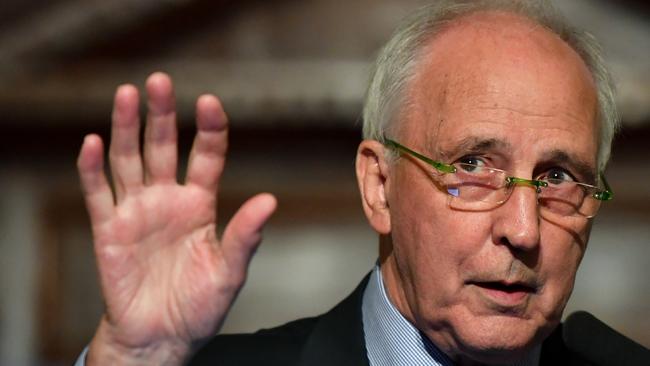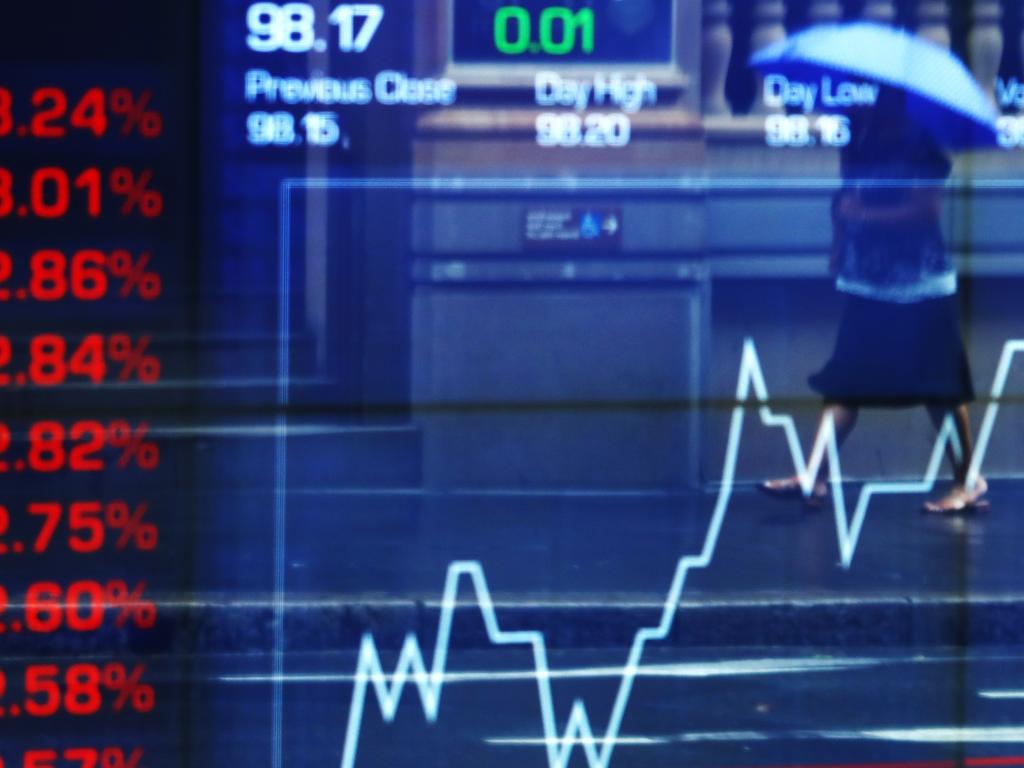Paul Keating slams super ‘rat’

The $700bn sector’s hostile-policy indicator has been flashing red over the early access scheme for fund members suffering financial hardship because of the pandemic; repeated calls by a group of Coalition MPs to freeze a legislated increase in employer contributions; and last week’s handover to Josh Frydenberg of the retirement income review.
The grandfather of the system, Paul Keating, took careful aim on Tuesday before firing off multiple rounds at those seeking to undermine his legacy.
Asked at an Industry Super Australia event about deferring next year’s increase in the employer charge from 9.5 per cent to 10 per cent, the former Labor prime minister said there was no economic case against the rise.
“There’s a prejudicial case from some of those baby-faced Liberals, who are a particularly modest form of political life,” he said, with trademark scorn.
Keating’s point was that average life expectancy for anyone born in the 1970s was now 105 to 110, and if they worked for 40 years from 25 to 65 they’d need to have built a sufficiently large nest egg to support themselves for a further 40 years.
A compulsory charge of 9.5 per cent was woefully inadequate.
A ‘reasonable pension’
Keating said it would be foolish to rely on “poor old Treasury” stepping in with a reasonable pension. This would be an offer to keep people in “penury” for 40 years.
While the Liberal Party had “never liked” mandatory super, the former prime minister said he intended to take Scott Morrison and the Treasurer at their word — the increase in super to 10 per cent was L-A-W, law, and would be implemented.
Like ISA chairman Greg Combet in this newspaper on Monday, Keating slammed the early access scheme, which so far has facilitated $30bn in redemptions and is forecast to reach $42bn by its scheduled expiry at year’s end.
The problem, he said, was that the nation’s most vulnerable and lowly paid workers had been encouraged to “rat” on their own savings.
The more equitable alternative in national hardship was a budget-funded response, instead of a scheme that breached the super system’s preservation rules without the promised scrutiny by the Australian Taxation Office of the hardship threshold.
Australian Institute of Superannuation Trustees chief executive Eva Scheerlinck backed Keating, saying the early release scheme had come at a huge cost to the retirement savings of low-paid workers.
A generation of young Australians were now missing the benefit of super returns averaging 7 per cent a year when the government could be borrowing at near-zero rates and providing more targeted assistance.
While no details are yet known of the retirement income review, Keating was suspicious of its motivations. “Some rank-and-file Liberals just don’t like unions,” he said. “They see industry funds as the long arm of the union movement into the capital markets.
“If you’re not in a pinstriped suit with a polka-dot tie and a Liberal Party ticket in your pocket, you shouldn’t be running capital.”
Dark towers
Only a few stragglers remain in Melbourne’s central business district as workers flee from the city’s office towers to escape the deadly coronavirus.
Vast buildings that used to teem with thousands of people are shut down or, in the case of ANZ’s headquarters at 833 Collins Street, shelter a skeleton staff of 200 to 300. The comparable figure pre-COVID was 7000-plus.
On Monday, ANZ chief executive Shayne Elliott bowed to the inevitable, packing up his Docklands office after Victorian Premier Daniel Andrews announced heavy stage four restrictions on Sunday to try to halt the rampant virus.
A big convert to workforce agility before the global pandemic, Elliott is working from his Toorak home.
The response of Docklands neighbour National Australia Bank has been even more emphatic.
NAB boss Ross McEwan mothballed two of NAB’s signature CBD buildings at 700 Bourke Street and 800 Bourke Street, consolidating the remaining essential services staff in a third tower at 500 Bourke Street.
Pre-COVID, the three buildings accommodated almost 17,000 people.
The virtual shutdown of these two pillars of the city’s business life has swung a wrecking ball through their supply chains.
Elliott told Melbourne talkback radio station 3AW that Victoria had clearly taken a blow, and a lot depended on the course taken by the state during the next six weeks.
“Clearly this is going to have a much greater cost to Victoria than any other state, and that has to be paid for at some point,” he said.
While there was no intention to move the bank’s headquarters to a more hospitable environment (at least for the moment) such as Sydney, the role of the head office would change radically, becoming more of a “touchdown point”.
“One of the things people quite rightly point out is the problem with all the Zoom calls and stuff you do online is that you don’t have the informality of running into people, or that conversation in the hallway that leads to a really good idea,” he said.
Reflecting on a board strategy meeting held last week, the ANZ boss said crises and adversity had spawned some of the world’s great innovations and companies, with Microsoft, Amazon and Uber among them.
Huge switches in consumer behaviour, such as the massive acceleration in digital adoption, could have a similar long-term effect.






The never-ending political war over compulsory superannuation has resumed, sparked by the industry funds’ belief that the integrity of the system faces a creeping three-pronged attack by the Morrison government.